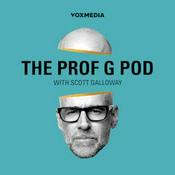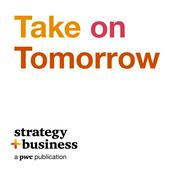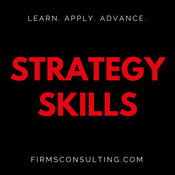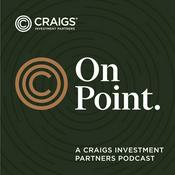184 episodes

Season Finale - 2026 Forecast: Preparing for the Future of Leadership
17/12/2025 | 54 mins.
In the session, David and Emma will discuss the most significant challenges leaders faced this year—from overwhelming complexity to the constant pressure for innovation, all while navigating the questions of how and where to use AI. Discover how NLI's work, including our NeuroIntelligent Leadership Enhancing System (NILES), has evolved to help leaders overcome these challenges through seamless integration of coherent insights. David and Emma will also reveal their predictions for what to expect from 2026. Get exclusive insights into the key trends and shifts that will define the organizational landscape next year. Walk away with a set of strategies and habits you need to adopt now to prepare your people and leaders for success in the new year.

Trends in Leadership Development: Designing the Ultimate Leadership Strategy in 2026
09/12/2025 | 53 mins.
In a world defined by accelerating change, overwhelm, and complexity, traditional models of leadership development are outdated. Now is the time to consider your 2026 strategy – one that moves from a series of disconnected events to a simple, scalable, and science-backed blueprint for real transformation.

The Future of Leadership AI: An Ecosystem of Coherent Insights
27/6/2025 | 54 mins.
Leaders don’t just need AI, they need a leadership AI that creates an ecosystem of coherent insights that makes them smarter and more effective. Join us for this week's Your Brain at Work, featuring NLI’s CEO and Co-Founder, Dr. David Rock, and VP of Solutions, Rachel Cardero, as they discuss how a leadership AI should be designed. The future of leadership AI is both predictive and coherent. It’s designed not only to support leaders in the flow of work but also to deliver predictive “neuro-intelligent nudges”— personalized actions based on what it has learned about the leader and their colleagues. A leadership AI should help overcome the challenges leaders face before they happen through seamless integration of coherent insights. This is the future of NILES, our NeuroIntelligent Leadership Enhancing System. Join David and Rachel as they reveal how neuroscience is shaping the newest version of NILES — and what exciting developments are on the horizon.

How NILES Can Make Leaders Smarter
20/6/2025 | 48 mins.
Today’s leaders are constantly trying to keep up with the complexity of the organizational landscape, all while making smarter decisions and driving their teams towards innovation. Join us for the next edition of "Your Brain at Work Live," where Dr. Emma Sarro discusses how NILES, the NeuroLeadership Institute's AI leadership coach, is set to revolutionize how leaders face each of these challenges. Most AI chatbots are designed to spit out answers like a simple search engine, which research shows only dulls our thinking. NILES is designed to generate moments of insight, sparking motivation to act, creativity and growth. In this session, you’ll discover the scientific foundation of NILES and how it can guide leaders to tap into their innate creativity, facilitating moments of insight that lead to transformative solutions. Drs. Rock and Sarro will discuss the science behind insight generation, pulled from over twenty years of coaching experience and peer-reviewed research. They’ll share how NILES is already driving leaders to insight in every conversation, increasing their critical thinking, creative problem solving, and strengthening their EQ. Don't miss this opportunity to discover how NILES can be your partner in achieving smarter, more effective leadership.

The Real Science of Habits
13/6/2025 | 51 mins.
In this episode of Your Brain at Work, we unlock the secrets to embedding effective and resilient habits. In today’s environment of accelerating change and overwhelming demands, building strong habits – those that become default under pressure – is more crucial than ever. Organizations need strategies that work quickly and scale easily, and are more helpful than telling people to rely on repetition. For over 25 years, NLI has been embedding habits quickly and at scale in organizations, transforming cultures in the process. Whether you're looking to build your own new habits or lead your team through transformative change, we’ll cover the strategies and key insights that help you succeed. Discover how to leverage the power of neuroscience to create lasting, impactful habits that support your goals and withstand the pressures of modern life. In this session, Drs. David Rock and Emma Sarro, will explore the latest neuroscience research on why the right habits are so important to build and how to do it in a way that sticks.
More Business podcasts
Trending Business podcasts
About Your Brain at Work
Listen to Your Brain at Work, Shared Lunch and many other podcasts from around the world with the radio.net app
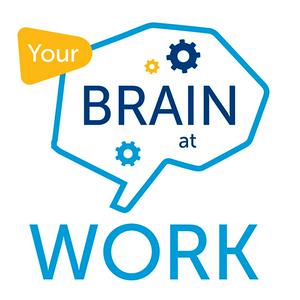
Get the free radio.net app
- Stations and podcasts to bookmark
- Stream via Wi-Fi or Bluetooth
- Supports Carplay & Android Auto
- Many other app features
Get the free radio.net app
- Stations and podcasts to bookmark
- Stream via Wi-Fi or Bluetooth
- Supports Carplay & Android Auto
- Many other app features


Your Brain at Work
download the app,
start listening.






